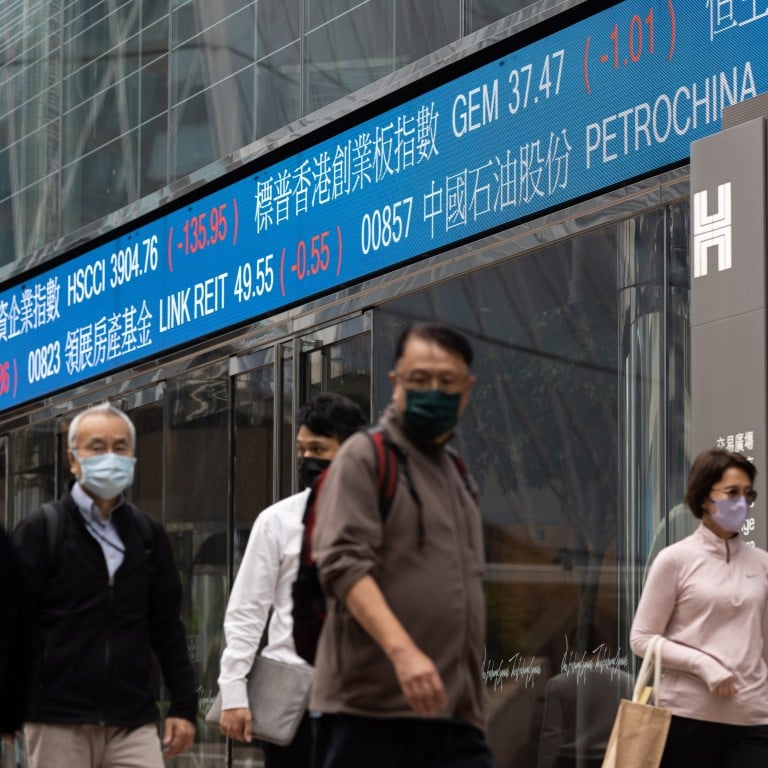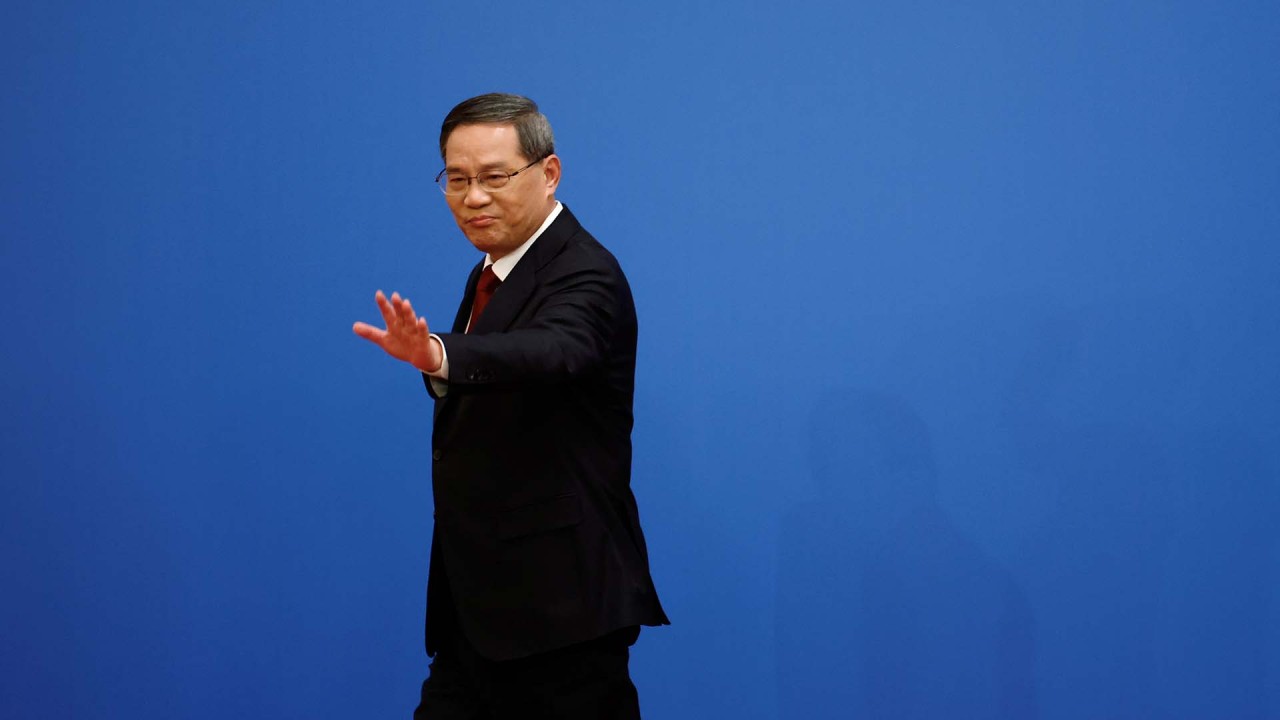
Goldman says hedge funds have clawed back 43 per cent of money spent on buying Chinese onshore stocks linked to zero-Covid pivot
- Instead, they prefer Chinese shares listed in Hong Kong and New York, Goldman Sachs says in report
- ‘For the onshore markets, there’s no bright spot except some thematic investment, so no fresh funds will pile in,’ Shanghai-based fund manager says
After another retreat in March, the cutbacks by hedge funds have amounted to 43 per cent of the purchases they made from November last year to January, Goldman Sachs said in a report last week. As a result, their net allocations to China have declined to 11.1 per cent of their books on average, from as high as 13.3 per cent on January 25.
The three-month period coincided with China’s zero-Covid pivot, or so-called reopening playbook, during which the benchmark CSI 300 Index jumped 18 per cent and its market capitalisation ballooned by 3.6 billion yuan (US$522 billion).
“China’s pivot to support the private sector has bolstered the risk appetite for offshore stocks,” said Dai Ming, a fund manager in Shanghai at Huichen Asset Management. “For the onshore markets, there’s no bright spot except some thematic investment, so no fresh funds will pile in.”
The CSI 300 fell 0.6 per cent on Monday to retreat from a five-week high, while gauges tracking stocks in the Shanghai and Shenzhen bourses also tumbled, after the state-run Economic Daily called for regulatory oversight following a rally in technology stocks fuelled by ChatGPT and the Micron chip investigation.
Despite the hedge funds’ retreat, China stock strategists from Goldman Sachs to Bank of America and Morgan Stanley continue to favour China’s A-share market, amid expectations that it will profit from Beijing’s pro-growth and business-friendly policy signals.
Hedge funds cut China stock bets as strategist says ‘bide your time’ for gains
“The economy is in a sweet spot where policy is very stimulative, growth is strengthening from a weak base and inflation remains low,” Chen Zhao, chief global strategist at Montreal-based Alpine Macro, said in a report on April 10. “This is a juncture where equity and bond prices tend to rise quickly. We recommend that clients add positions on any major pullback in China’s onshore stock market, as well as Chinese tech plays.”
Strategists at BCA Research prefer a cyclical overweight stance on Chinese onshore stocks. If global recession risks intensify and the global equity bear market continues, Chinese stock prices will also drop but at a smaller magnitude than their global peers.
Some investors, however, remain unconvinced about the strength of China’s economic rebound. A mixed bag of data in the January-February period has prompted them to scale back reopening trades to chase momentum stocks on ChatGPT and artificial intelligence (AI) themes.
AI-linked stocks surged by almost 60 per cent this year, according to data compiled by Shanghai DZH. That has prompted the state-backed newspaper Economic Daily this week to call for deeper regulatory scrutiny, citing excessive speculation and bubble risks.
As a result, hedge-fund managers have since switched their focus to Chinese stocks listed in Hong Kong and New York, according to Goldman. The pattern mirrors how smart money has adjusted to a mixed bag of economic indicators, the reappearance of businessman Jack Ma and the business reorganisations at Alibaba Group Holding and JD.com.
Alibaba, the owner of this newspaper, has risen by 23 to 30 per cent in Hong Kong and New York since unveiling its business revamp on March 28. The group’s market value has ballooned by a combined US$104 billion, a rally that has also fuelled big gains at its Chinese technology peers.
Chinese stocks face Micron test after Alibaba’s US$84 billion ‘peace’ rally
“Flows have also been more supportive [for Hong Kong-listed shares] via the Southbound channel since January,” analysts at Goldman wrote in the April 7 report.
Mainland Chinese investors ploughed US$1.2 billion of fresh money into the Hong Kong market last week, taking the tally in 2023 to about US$11 billion. Global funds withdrew US$447 million from the onshore stock markets last week, the most in a month, to trim their inflows this year to US$27 billion.


